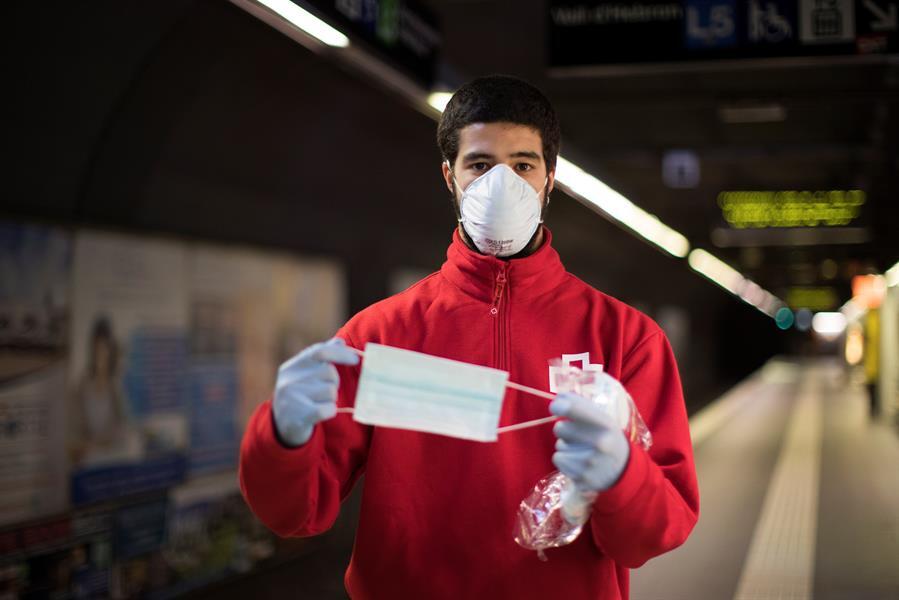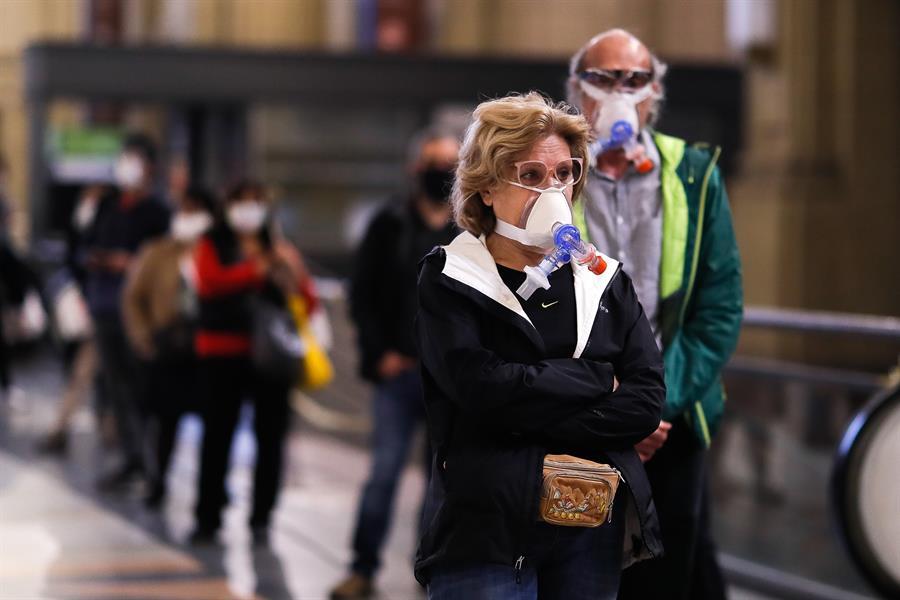
Spanish – We know that ten countries have been scammed for medical supplies from China: Spain, the United Kingdom, Colombia, Canada, Germany, the Netherlands, Finland, the Czech Republic, Belgium, and Turkey.
Countries worldwide must support each other in this pandemic to address the shortcomings of the various health systems. In this regard, China has not been a reliable ally as it has swindled several countries with defective medical supplies.
Spain: the scandal of useless tests
Spain, like other European countries, received thousands of rapid diagnostic tests from China. At the end of March, the Chinese Ministry of Health, Consumer Affairs, and Social Welfare distributed 8,000 rapid diagnostic kits to detect COVID-19. The results were catastrophic. The tests were only 30% sensitive, whereas the World Health Organisation (WHO) guidelines indicate that they should be 80% sensitive.
If the situation was already scandalous, everything got worse when the Chinese Embassy in Spain stated that Shenzhen Bioeasy Biotechnology, the company from which the Spanish government bought the kits, was not among the list of companies certified and licensed to export medical supplies.
When the scandal of the failed tests came out, Shenzhen claimed that the tests were not faulty and alleged that they were used incorrectly. Meanwhile, a Chinese government source told EFE that “they have not detected any irregularities in these kits at the moment,” but investigations would continue.
This happened last month, and, eventually, the matter was resolved with an agreement between the Spanish government and the company Shenzhen Bioeasy to send another type of more reliable test, although the company does not have an official license from the Chinese government.
Spain was not the only country affected by defective tests
The Czech Republic and Turkey have also been affected by rapid diagnostic tests from China. In the case of Turkey, the same company, Shenzhen Bioesay, provided tests that weren’t sufficiently effective. The Turks had no choice but to return the kits.
The batch had about 350,000 kits. But the Turkish government tested them before carrying out large-scale trials. “The Spanish government made a serious mistake in using them,” said Ates Kara, a member of the Turkish Ministry of Health’s coronavirus response team.
Turkey, despite being one of the few countries that produce their own tests, does not manage to process enough daily tests to ensure self-sufficiency. “Our test numbers are low. We were certainly not prepared. Countries that are ready should have high test numbers,” Sinan Adiyaman, president of the Turkish Medical Association (TTB), told Reuters.
In the case of the Czech Republic, it has not been officially confirmed that the tests do not work. But local media reported that up to 80% of the rapid diagnostic kits sent from China had problems.
The Czech government denied this press report, saying the problem was “procedural.” Deputy Health Minister Roman Prymula, along with Interior Minister Jan Hamacek, claimed that the percentage revealed by the press was incorrect and that the cause of the failures could be due to methodology. The Czech government reportedly acquired some 150,000 kits.
Colombia: the South American scam
The Colombian Ministry of Health reported that thousands of rapid tests for COVID-19 from China are not working. As in Spain, Health Minister Fernando Ruiz Gómez informed Congress that the acquisition was made from a laboratory not approved by the Beijing government, which sent test kits that did not deliver reliable results.
While the Chinese government may claim that suppliers are not endorsed by them, the fact that companies are ripping off the world should be reason enough to address this issue squarely. Why do they continue to operate? What measures will be taken?
The United Kingdom and the Great Chinese Scam
The British government not only canceled the purchase of 17.5 million antibodies tests that do not work but also demanded a refund from the Chinese government for the 3.5 million tests manufactured in the Asian country that gave “many false negatives and also false positives,” as indicated by British authorities.
The United Kingdom was perhaps the country most affected by business dealings with the Asian country during the pandemic. First, the British government had ordered thousands of antibody tests from China to detect who had suffered from the disease. But, almost no results were safe or effective to implement on a large scale, according to John Newton, who is in charge of evaluating the tests in the United Kingdom.
Newton notes that the tests can accurately identify only the antibodies to the virus in people who have been severely ill, but not in those who have had mild or moderate symptoms. Hence, the procurement of the kits has been canceled.
Secondly, the reimbursement requested by the UK government is for the 3.5 million of these tests acquired during March, which proved to be inefficient. Newton also revealed that “nearly 3.5 billion tests purchased by the government are not sufficiently reliable.”
The problem with Chinese masks
The Netherlands, Germany, Belgium, Finland, and Canada were the countries that suffered the consequences of the poor quality of Chinese masks. Some more than others.
The Dutch Ministry of Health announced the withdrawal of 600,000 masks from a Chinese manufacturer on March 21. We can say that the Netherlands perhaps suffered the least from the bad deal. The number was relatively low compared to other countries.
The products that arrived in the Netherlands, in theory, had the N95 quality certification. But Dutch medical officials reported that the masks did not fit the face and that the filters were not working properly. Therefore, they were removed from the supply for the medical staff. The German case is far more dramatic since the masks are not only sub-standard but also totally damaged. Moreover, the number is extremely high: 11 million masks are unusable.
According to Der Spiegel magazine, the Chinese masks procured by Germany turned out to be “rubbish,” as they had bad filters and broken straps. This has yet to be confirmed by official sources. Der Spiegel had already disclosed how six million masks ordered by Germany were lost in Kenya weeks ago.

Canada was not far behind because they bought a million KN95 masks that turned out to be defective. The Trudeau administration’s Department of Health reported that the masks did not comply with the requirements of the federal standards.
The worst part of this situation is that the masks were intended for health workers who are on the front line of treatment for the coronavirus outbreak that originated in Wuhan, China.
The same happened to Belgium, which received a batch of useless KN95 masks, Deutsche Welle reported. “The new batch of masks were of the KN95 type, equivalent to FFP2, and came from a Chinese supplier,” the report said. The masks that arrived in Belgium did not pass the quality tests and could not be used either.
The Finnish government also complained about the subpar material, which has caused China to requisition 89 million masks “to avoid criticism.”
The West must take action
This large number of irregularities with companies and the Chinese regime should serve as a warning to the countries of the world: you cannot do business with regimes or companies under this condition. The worst thing is that the propaganda spread by the Chinese regime for this “aid ” is astonishing. It is a notorious attempt to find allies and clean up its image as well.
Western countries should exercise their responsibility and demand that China’s regime carry out a thorough quality check. The Chinese authorities’ flimsy excuse that “the market is too big” is not valid. China is putting countless lives at risk, first, by blatantly concealing the virus, and now, with its defective and useless medical supplies.
 Versión Español
Versión Español












